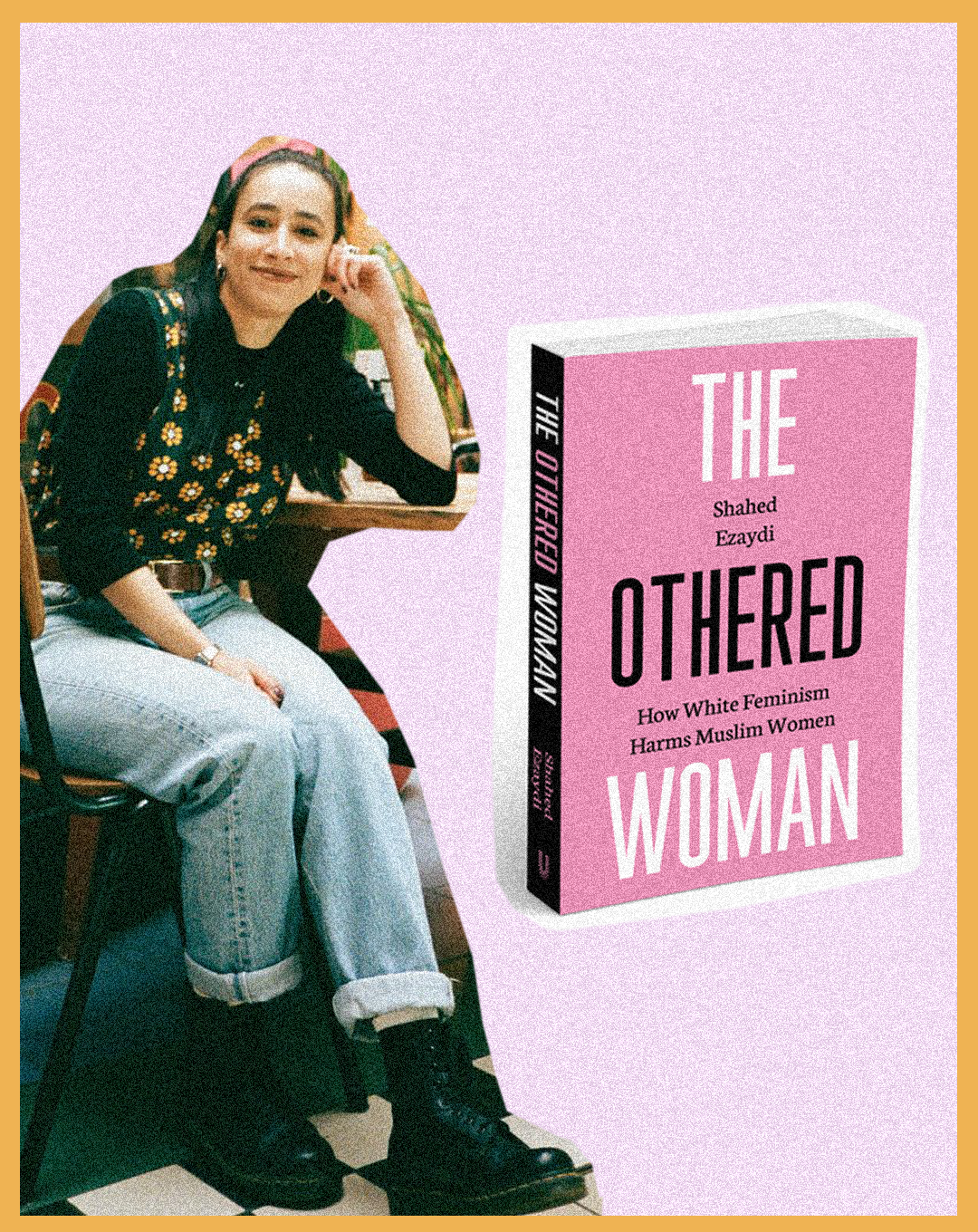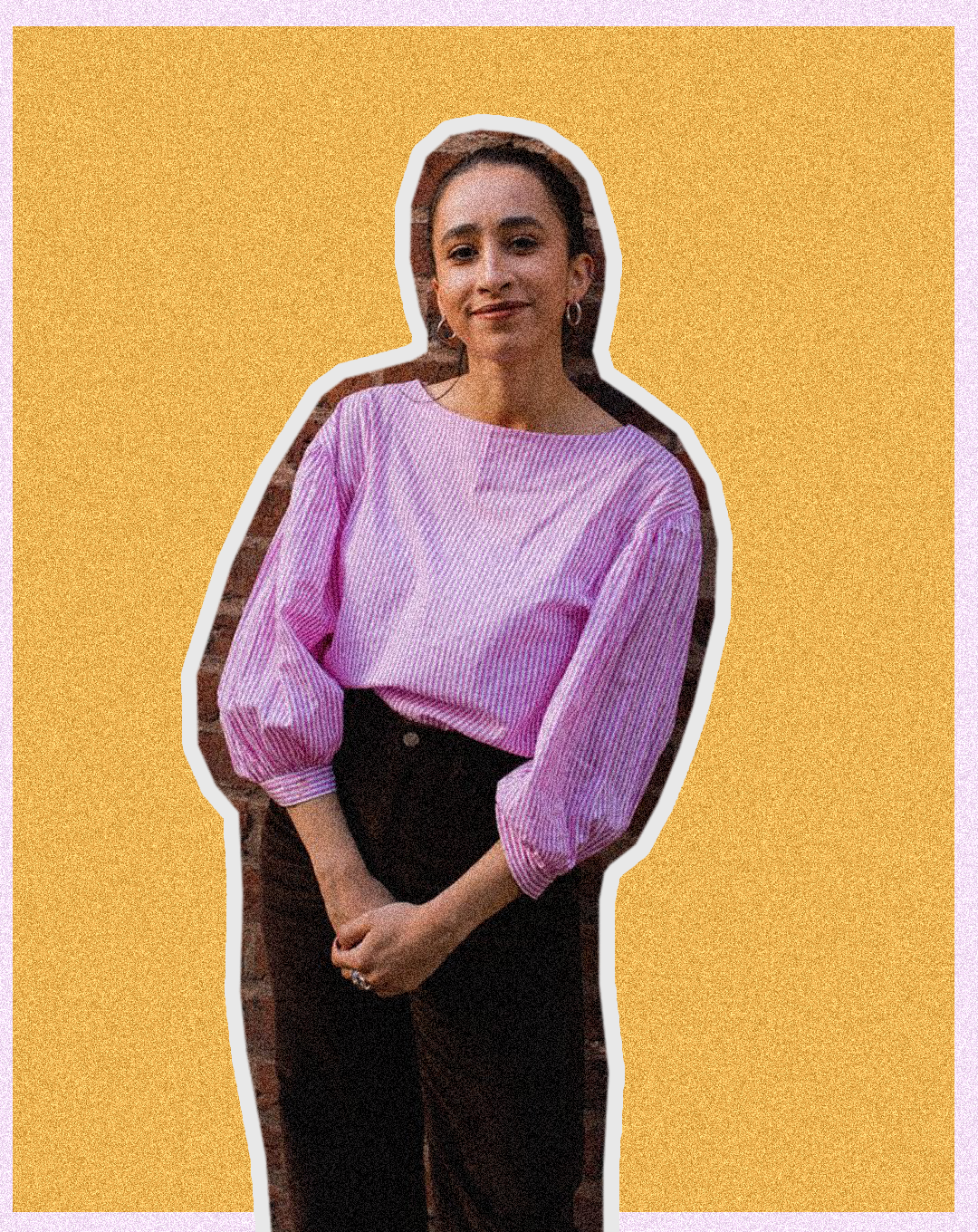Shahed Ezaydi's The Othered Woman is an Essential Addition to Intersectional Feminism Discourse
Shahed Ezaydi is a Libyan journalist and author specialising in political and social issues. Ezaydi, a proud Northerner and Muslim woman, is passionate about reporting on issues from underrepresented communities such as Islamophobia, particularly gendered Islamophobia, which is rarely discussed in mainstream media but is a very real experience for many Muslim women. Her new book, The Othered Woman: How White Feminism Harms Muslim Women, is the next step in her mission of amplifying and sharing these experiences with the rest of the world.
“It's still in its early stages, but I'm hoping it'll make a significant contribution to the feminist field because I've never really read about gendered Islamophobia in relation to feminism, [and] I don't feel like there's really a book out there like this one, which speaks to the publishing industry and the sad state of affairs this section of feminism is in.” Ezaydi enthuses, “I feel like Muslim women need to occupy more of that space and hoping that this [book] will do that.”
There is a clear reason why mainstream literature has yet to address the intersection of white feminism and gendered Islamophobia - bringing this issue to light forces white women to examine their own biases and assumptions about Muslims, which the predominantly white publishing industry is unwilling to do. Perhaps due to the complexities of the subject matter or rather the controversy associated with calling out problematic white women, as demonstrated by the social artefact of ‘Karens’.
Despite the gravity of the subject and the dangers that these misconceptions pose to society, it appears that the publishing industry saw no need for a correction. "Well, they want diverse voices and Muslim women's voices in publishing," Ezaydi says, "But when we write about our own community and the harm of white feminism, or any harm caused by the Western world, they say it won't sell and there's no audience for it."
___STEADY_PAYWALL___
In spite of mainstream publishers’ failure to recognise the appetite for and power of such a story, Ezaydi has found a wealth of support for her book at the crowdfunding publisher Unfound. "Alhamdulillah for Unbound. They've been such great publishers, they immediately took on the proposal. They didn't make any changes to it. But a lot of bigger publishers, not to name names, came back and said this book needs changing to make it more sellable."
Though she makes it clear that not all white women share those views (the use of white feminists here refers to women who subscribe to a brand of liberal feminism which excludes intersectionality, not white women who are feminists), Ezaydi's upcoming book will explore the intersection of white feminism (also known as liberal feminism) and gendered Islamophobia. Her investigations will focus on the double-edged sword built on misconceptions about Muslim women that have been widely spread by white feminists. “They have convinced themselves that they must come to our rescue. Muslim women are constantly demonised and vilified, despite the fact that we have supposedly been silenced and oppressed because of Islam's inherent violence.”
Ezaydi is dismantling all those misconceptions; one chapter deals with single-issue oppression, "The idea that they only see us as Muslims without considering intersectionality or the variety of our experiences within the ummah.” Another issue explored will be the inherent misogyny that liberal feminists perceive in Islam. "In actual fact it's far more complicated", Ezaydi tells me. "There's more to it than just, you know, Muslim men are the most violent form of men in society and Islam as the reason why they're violent or misogynists.”
The hijab is also a big focus in Ezaydi’s investigation. “I think white feminists are utterly obsessed with the fact that a lot of us will wear the hijab and it's become such a huge political symbol. You've got half of Europe issuing hijab bans in the name of gender equality.” Ezaydi disputes the reality of this claim, accusing white feminists of weaponising feminist rhetoric and operating under the guise of liberalism while restricting people's freedom of expression.
Continuing with chapters on state violence, Ezaydi centres in on the Afghan war and the feminist justifications for it—that Afghan women were in danger and needed to be rescued, and that the promotion of gender equality was merely a ploy to win over the public in the United States and Britain. She elaborates: “Actually they are fighting their own fight, and we can help them in a different way without imperialism and going to war with the country based on a misconception.”
“I’m hoping this will show white feminists that white feminism isn’t what holds feminism up. They need to be looking at Black women's experiences, Muslims experiences, queer women's experiences, and not just approaching equality like, oh, this is my experience as a middle class white woman. I'm hoping that when white feminists read this book, they can understand that a little bit more.”
In reality, there were political factors at play - namely colonialist ambitions and mineral extraction. "My book will be dispelling a lot of myths, and there will be interviews, primarily with women, which I'm currently conducting." Ezaydi explains, “I’m hoping this will show white feminists that white feminism isn’t what holds feminism up. They need to be looking at Black women's experiences, Muslims experiences, queer women's experiences, and not just approaching equality like, oh, this is my experience as a middle class white woman. I'm hoping that when white feminists read this book, they can understand that a little bit more.”
The Othered Woman is going to be an essential contribution to the intersectional feminism discourse on gendered Islamophobia. At the time this article was written the project was 31% funded by 177 supporters. I urge all true feminists, anyone who wants to transform society by eradicating Islamophobia while also creating safe spaces for all women, and anyone who wants to enjoy a rich, diverse publishing industry to donate, share and contribute in any way to the crowdfunding campaign because we need more voices like Ezaydi's telling stories.
Words: Muna Ahmed
To support, visit the project page here and see all of the different pledge levels on offer to help get Shahed’s book fully funded.


